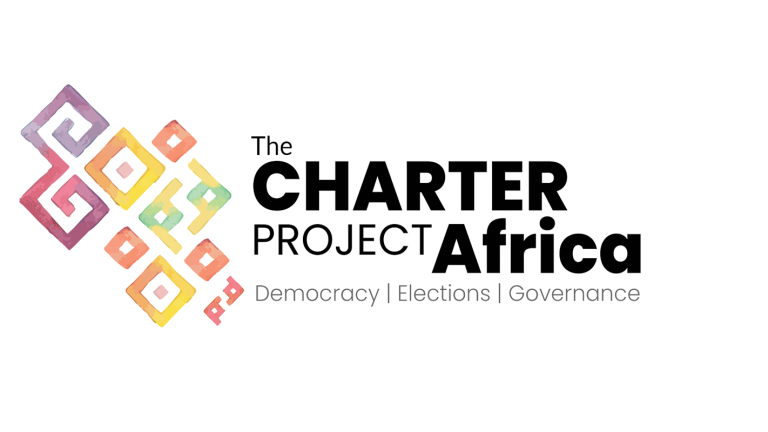
Civic tech at the service of democracy and good governance in Africa
Civil society connects citizens with a variety of actors, facilitating civic engagement and participation. It is generally described as the ‘third space’ where citizens with different interests can address issues on a common platform.
In due recognition of this, the African Charter on Democracy, Elections and Governance (ACDEG) – a legally binding document encompassing African Union’s (AU) policies and principles on the governance agenda – stipulates that AU member states who have signed on to and have ratified the Charter, undertake programmes and carry out activities designed to promote democratic principles and practices as well as consolidate a culture of democracy and peace.
In this context, new and well-established civil society organisations (CSOs) alike are using ‘civic tech’ across the continent to reinforce the promotion of democracy and good governance through the AU instruments, notably the ACDEG. Even though there is no common definition, we can nevertheless clarify the contours of civic tech.
It encompasses initiatives that contribute to the development of citizens’ power to act, facilitate citizen participation and provide the necessary tools to improve the transparency of governance. If properly deployed, civic technology can help strengthen democratic processes and promote inclusive decision-making. Further to this, it can aid the emergence of strong political leadership based on respect for the principles of democracy and human rights.
But civic tech tools and services can only be built if there is the assurance of an adequate level of citizen protection from abuse, no limitations to freedom of speech and some access to online resources and networks. All these conditions are of course predicated on the citizens’ ability to optimise their digital skills to invoke their rights. While the ACDEG tasks countries to create conducive spaces for civil society – this is easier said than done. Civil society continues to operate in difficult and oftentimes repressive political spaces.
To some extent, this is overcome by digital technologies. For example, during the 2011 Arab spring protests in Egypt and Tunisia, smartphones and social media platforms were credited with facilitating an organisational structure that outpaced the governments trying to suppress the protests. In 2008, Kenyan civil society successfully deployed crowd-sourcing technologies to map out the unfolding post-election violence in the country. This contributed greatly to informing the mediation efforts that brought an end to the violence. In all these cases, technology simplified the sharing and exchange of information between citizens and CSOs.
This is in line with the principles of the ACDEG, which is inspired by the objectives and principles enshrined in the Constitutive Act of the African Union, namely Articles 3 and 4. These emphasise the significance of good governance, popular participation, the rule of law and human rights, the commitment to promote the universal values and principles of democracy, good governance, human rights and the right to development. The Charter seeks to instil in the continent a culture of political power transition through regular, free, fair and transparent elections conducted by competent, independent and impartial national electoral bodies. This is particularly relevant as unconstitutional changes of governments are one of the main causes of insecurity, instability and violent conflict in Africa.
Activists understand that civic tech can help counter the effects of democratic representation deficit by creating mechanisms for collective mobilisation, dialogue between citizens and elected officials, demanding transparency in the operations of public institutions, and reinventing the forms of power of action of citizens.
Today in West Africa, civic tech solutions are used in all phases of the election process. From the filing of candidacies to the proclamation of final results, including election campaigns, population awareness of voting, respect for candidates’ commitments, observation of voting, monitoring of elections, prevention of electoral conflicts, participation of youth and women, publication of provisional results, mitigation of tensions, early warning, the proposal of solutions to avoid post-election crises, etc., civic tech intervenes at all levels to promote fair, free and transparent elections.
However, the promise of civic tech is undermined by increasingly repressive measures and policies to curb civil society activism by silencing certain actors’ voices. This phenomenon, described as the shrinking of civic space, reduces the ability of civil society organisations to play their fundamental role as guardians of democracy and promoters of alternatives. We thus note failures in the obligation of states to promote and protect an enabling environment for civil society, in particular freedoms of expression, assembly and association, free access to and dissemination of information, and participation in public affairs. This phenomenon is increasingly recognised as a global issue; “Public Participation and Civic Space” was one of the priority areas of the United Nations Secretary-General’s 2020 Call to Action for Human Rights.
This constraint on civic space is carried to the digital space through measures such as internet shutdowns and the existence of structural barriers including the lack of access to the internet and smartphones in rural areas.
While civil society can use civic tech to engage with institutions such as national parliaments, this can’t be achieved because the majority of the population in many African countries lacks access to the internet or infrastructure and hence cannot engage in politics digitally.
Although civic technology in Africa is limited because of the low access to the internet, it remains the best tool for democratic change. Civic tech has increased the power of citizens over political life and made governments more accessible, efficient, effective and accountable. Better yet, it has fostered inclusive and participatory governance of communities through the strong involvement of non-state actors such as civil society organisations. However, the restriction of civic space in Africa is a blocking factor in the meteoric rise of civic technology in Africa. Governments are using undemocratic methods to reduce the scale of this phenomenon and its impact, justifying their decisions on the grounds of copyright infringement, cyber harassment, harming minors, inciting hatred, or endangering others by sharing personal data, etc. but the reason lies elsewhere The Universal Declaration of Human Rights was adopted by the UN General Assembly in 1948; yet it is perfectly adaptable to the 21st century and its social networks. With the support of the AU, African civil society organisations must fight to ensure that this momentum is not halted.
About the authors
Latyr Tine is a senior programme officer on peacebuilding and conflict prevention and Rukia Mohamed Bakari is a senior programme officer on women, peace and security at the Gorée Institute. The Gorée Institute and ECDPM are part of the Charter Project Africa, an initiative aimed at using civic technology to boost citizen engagement with the ACDEG.
The project runs the Civic Tech Fund programme, which has supported many African civil society organisations (CSOs) in the development of innovative ways to be involved in election management and democracy-building in the target countries. For more information about the Civic Tech Fund, visit https://civictechfund.africa/fr/about/.
The views are those of the authors and the associations they represent, and not necessarily those of ECDPM.








